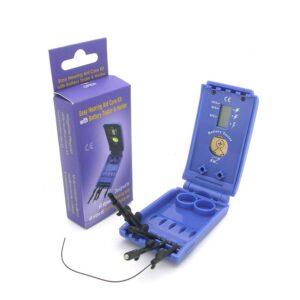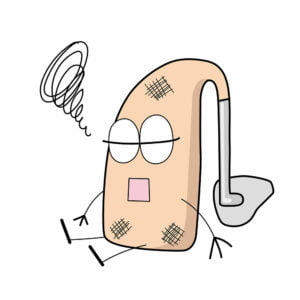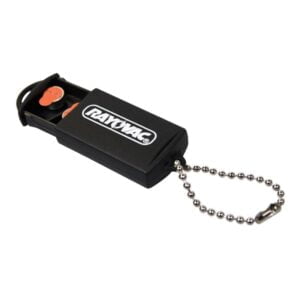Whether you’re a longtime hearing aid user or new to the world of hearing assistance, understanding how to manage your batteries is crucial for maintaining the best possible performance from your devices. At Hearing Aid Accessory, we know that you might have numerous questions about those tiny components, from their lifespan to their disposal.
In this blog post, we aim to answer 21 of the most asked questions about hearing aid batteries. We’ll provide you with all the essential information you need to ensure your hearing aids are always powered and ready to go. Let’s dive in!
Question 1: How long do hearing aid batteries last?
One of the most common questions we get asked is, “How long does a hearing aid battery last?” The answer can vary quite a bit, but generally, they last between 3 to 10 days. Several factors can influence this range. For example, they come in various sizes, and their lifespan can vary accordingly:
- Size 10 (yellow): 3 to 7 days
- Size 312 (brown): 3 to 10 days
- Size 13 (orange): 6 to 14 days
- Size 675 (blue): 9 to 20 days
How you use your hearing aids can also affect battery life. For instance:
- Streaming: Regularly streaming audio from your phone or other devices can drain batteries faster.
- Volume Settings: Higher volume settings can increase power consumption.
- Environmental Conditions: Humidity, temperature, and altitude can all impact battery performance.
Question 2: Can rechargeable batteries be replaced?
Yes, rechargeable batteries in a hearing aid can be replaced, but it usually needs to be done by a professional. It’s important to follow the manufacturer’s guidelines for replacement to ensure the hearing aid’s performance isn’t compromised.
Question 3: Which brand of 312 hearing aid batteries last the longest?
The longevity of 312 batteries can vary by brand, but some of the top-performing brands include Duracell, Rayovac, and Energizer.
Question 4: Which is better: hearing aids with batteries or rechargeable ones?
The choice between disposable battery hearing aids and rechargeable ones depends on personal preference and lifestyle. Disposable batteries are convenient for quick replacement, while rechargeable models are more environmentally friendly and can be more cost-effective over time.
Question 5: How long do rechargeable batteries for hearing aids last?
Rechargeable batteries typically last for a full day (about 16-20 hours) on a single charge. Their lifespan before needing replacement is usually around 1-3 years, depending on the battery type and usage. A battery tester can be useful to check battery levels and ensure your batteries are performing optimally. Have a look at the one we have in stock below.

Question 6: How do I change the batteries in my hearing aids?
To change your batteries, follow these simple steps:
- Open the battery compartment on your hearing aid.
- Remove the old battery and dispose of it properly.
- Insert the new battery, ensuring the positive side (+) is facing up.
- Close the battery compartment securely.
If you’re ever unsure about how to change hearing aid batteries, these steps should guide you through the process smoothly.
Question 7: How do you dispose of hearing aid batteries?
Batteries should always be disposed of properly due to their chemical content. They can be taken to recycling centers or special disposal bins found in many pharmacies and electronics stores. If you’re wondering how to dispose of hearing aid batteries, remember that proper disposal helps protect the environment and ensures safe handling of these materials.
Question 8: Why does one hearing aid battery die before the other?
One hearing aid battery may die before the other due to different usage levels, device settings, or even slight manufacturing differences between the batteries. Regularly rotating the batteries between devices can help even out their usage.
Question 9: Do batteries for hearing aids expire?
Yes, they have an expiration date, usually printed on the packaging. It’s important to check this date before use, as expired batteries may have reduced performance or not work at all.
Question 10: Does Bluetooth drain hearing aid batteries?
Yes, using Bluetooth can drain hearing aid batteries quicker because it requires additional power to maintain the wireless connection. Regular streaming or connectivity can significantly reduce battery life.

Question 11: Are hearing aid batteries recyclable?
Yes, they are recyclable. They should be taken to a recycling facility that handles batteries to ensure proper and safe recycling.
Question 12: Where do I pack hearing aid batteries when flying?
When flying, it’s recommended to carry hearing aid batteries in your carry-on luggage. This helps prevent exposure to extreme temperatures and pressures in the cargo hold
Question 13: What are the signs that a hearing aid battery needs to be replaced?
There are several signs that indicate it’s time to replace your hearing aid battery:
- Weak or Distorted Sound: If the sound from your hearing aid becomes weak or distorted, the battery might be losing power.
- Frequent Beeping: Many hearing aids have a low battery warning beep. If you hear this beep more frequently, it’s a sign that the battery is running low.
- Device Stopping and Starting: If your hearing aid turns off and on intermittently, it’s likely due to a dying battery.
- No Response: If your hearing aid doesn’t turn on at all, the battery might be completely drained.
By recognizing these signs, you can replace your hearing aid battery promptly and avoid interruptions in your hearing aid’s performance.
Question 14: How do you open the hearing aid battery door?
Unsure how to open the hearing aid battery door? No need to worry, it should be quite easy! Simply locate the small latch or notch on the hearing aid’s casing, and gently pull or slide it open. This exposes the battery compartment for easy replacement. Voila!
Question 15: Can I bring hearing aid batteries on a plane?
Yes, you can bring hearing aid batteries on a plane. It’s advisable to carry them in your hand luggage and inform security personnel if required. A hearing aid battery holder can be quite handy in cases like this, keeping your batteries organized and easily accessible. Have a look at the one we have in stock below.

Question 16: Are hearing aid batteries covered by Medicare?
Medicare generally does not cover these costs, although some Medicare Advantage plans might offer additional benefits that include coverage for hearing aids and related accessories.
Question 17: Are batteries for hearing aids dangerous if swallowed?
Yes, batteries in general can be very dangerous if swallowed, especially for children and pets. If this happens, you should seek medical support as soon as possible.
Question 18: Can hearing aid batteries be used for anything else?
Hearing aid batteries are specifically designed for hearing aids and may not be suitable or safe for other devices. It’s best to use them only for their intended purpose.
Question 19: Where can you buy hearing aid batteries?
They can be purchased at most pharmacies, electronic stores, and online retailers. It’s important to choose a reputable source to ensure you get high-quality, fresh batteries.
If you’re unsure where to buy hearing aid batteries, look no further than Hearing Aid Accessory. We offer a wide range of high-quality hearing aid batteries to meet all your needs. .
Question 20: How can I maximize the life of my hearing aid batteries?
Maximizing the life of your hearing aid batteries can help you get the most out of each battery and reduce the frequency of replacements. Here are some tips:
- Turn Off When Not in Use: Always turn off your hearing aids when you’re not using them, especially overnight.
- Open the Battery Door: When not in use, open the battery door to minimize battery drain and allow moisture to escape.
- Store Batteries Properly: Keep batteries in a cool, dry place. Avoid storing them in hot or humid environments, as this can shorten their lifespan.
- Use Fresh Batteries: Check the expiration date on battery packaging and use the freshest batteries first.
- Handle with Clean Hands: Oils and dirt from your hands can affect battery performance, so handle batteries with clean, dry hands.
Question 21: What should I do if my battery compartment gets damaged?
If your hearing aid battery compartment gets damaged, it’s essential to address the issue promptly to avoid further damage to your hearing aid. Here’s what to do:
- Inspect the Damage: Check the extent of the damage. If it’s minor, like a loose battery door, you might be able to fix it yourself.
- Avoid Using the Hearing Aid: Using a hearing aid with a damaged battery compartment can cause further damage or even harm the device.
- Contact Your Provider: Reach out to your hearing aid provider or audiologist for professional assistance. They can assess the damage and either repair it or recommend replacing the compartment.
- Warranty Check: If your hearing aid is still under warranty, the repair might be covered. Check with your provider for warranty details.
Final Notes
Understanding the ins and outs of hearing aid batteries can help you get the most out of your hearing aids. We hope this blog has answered all your questions and provided valuable insights into maintaining your hearing aids effectively.
For those looking to ensure their hearing aids are always powered and ready, we invite you to browse our wide range of high-quality hearing aid batteries. Browse our shop today to find the perfect batteries for your needs and keep your hearing aids running smoothly.

